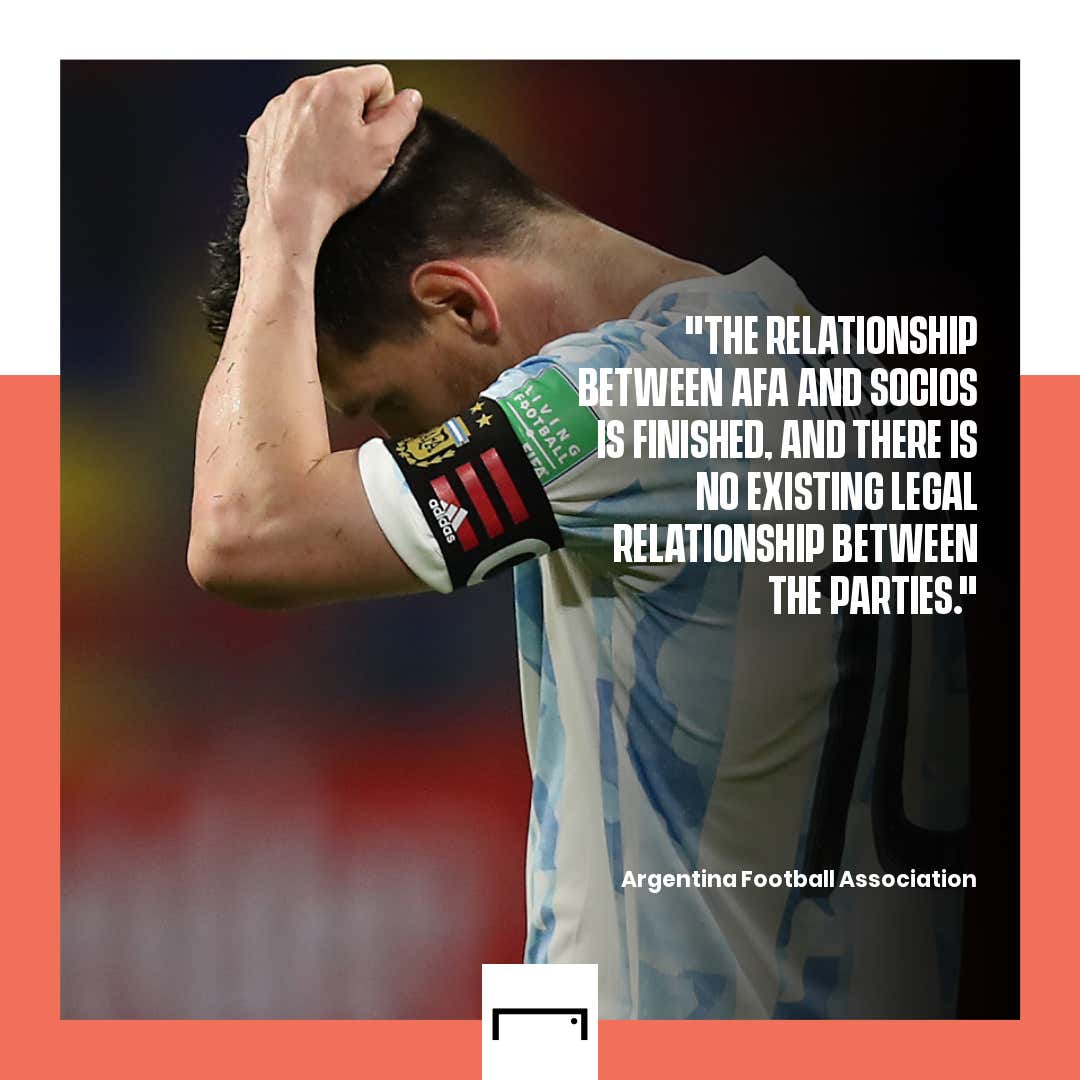Maybe you’ve seen it on Inter’s kit. Maybe you’ve seen it on a social media feed for your favourite club. Or perhaps you’ve seen it on advertising boards in football stadiums around the world.
But chances are, if you’ve followed football in recent months, the cryptocurrency fan token company Socios has at least fleetingly tugged at your attention.
Now, the Argentina national team are at war with the fast-growing organisation in a bizarre feud that could have far-reaching consequences for the relationship between football and cryptocurrency.
Editors’ Picks
At the core of the fight is Argentina’s decision to sign a five-year sponsorship deal with Socios rival Binance despite already having a three-year agreement with Socios that had been announced last June.
Socios believes this to be a blatant breach of contract. Argentina, meanwhile, contend it was Socios who broke obligations – though the nation was not specific in that claim.
A statement from Socios this week excoriated leadership of the Albiceleste.
“We are thoroughly outraged by AFA’s recent actions,” the company wrote. “AFA has issued a press release announcing a new Fan Token partnership, Sponsorship and Naming Rights with a different provider barely 9 months into a 3 year contractual relationship with Socios.com that remains in full force.
“They pretend to grant the same rights we currently enjoy to a third party and we will be doing everything in our power to defer AFA from proceeding and to protect the rights of the fans who have purchased $ARG Fan Tokens. This is a direct breach of contract and we will be taking all necessary legal actions, in every forum and jurisdiction, to protect the rights of Socios.com, the fans and to ensure AFA comply with what they have agreed with.”
Argentina fired back, writing in a statement: “The relationship between AFA and Socios is finished, and there is no existing legal relationship between the parties.”

Socios has yet to publicly outline its exact course of legal action, but that development should be forthcoming.
In any case, the fight is potentially significant for stakeholders beyond just Argentina and Socios.
Fans who have invested in Socios fan tokens, which are a form of cryptocurrency that can be used for perks related to their favourite teams, stand to lose money if the value of the virtual coins nosedives (Argentina’s token has swung wildly this week but is currently up since the Binance announcement).
Players, including Lionel Messi, who are being paid in part with fan tokens, also stand to lose money if the tokens enter a free fall. However, it’s not believed that many footballers have significant portions of their wages tied up in cryptocurrency despite rising interest in the medium. Eventually, though, cryptocurrency could take on a larger percentage of salaries, an agent who represents several U.S. national team players told GOAL.
If Socios does not manage to win its legal battle with Argentina, other teams could be emboldened to strike similar intellectual property contracts with rival fan token or NFT (non-fungible token) companies if they become unhappy with their current partnership.
Binance, the organisation Argentina have just controversially partnered with over Socios’ objections, already has its own foothold in the sport, having launched an Alphonso Davies NFT as part of its autumn unveiling of a new digital marketplace.
The firm is said to have generated at least $20 billion of revenue last year; estimates for Socios are harder to come by but not believed to be close to that scale despite its rapid growth.
Binance, though, has been less focussed on football than Socios and wants to enlarge its standing through the Argentina partnership – a direct threat to its competitor.
“Through this agreement [with Argentina], we hope to support Argentine soccer at all levels and introduce Binance, the crypto world and the blockchain to soccer fans across the country and the world,” it wrote in a statement.
